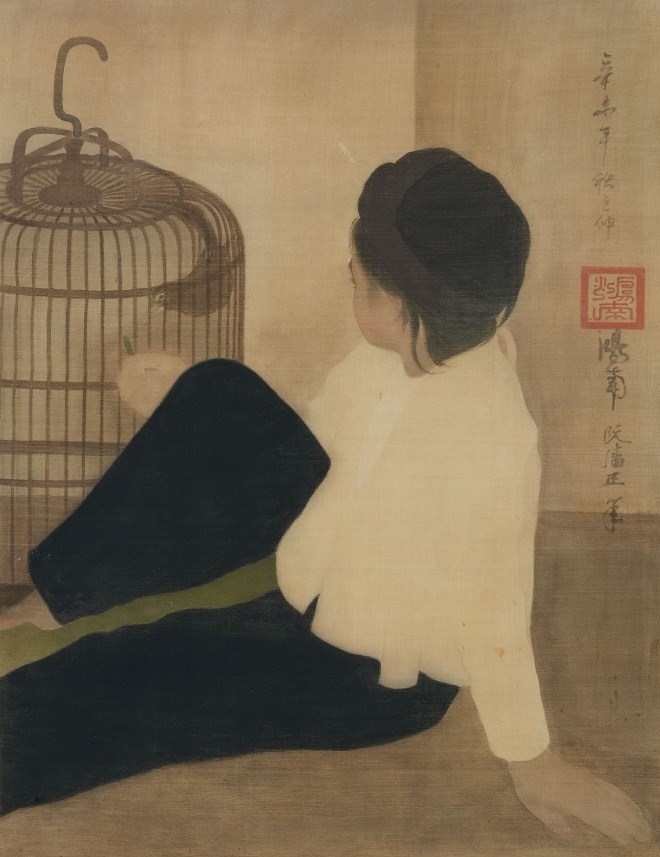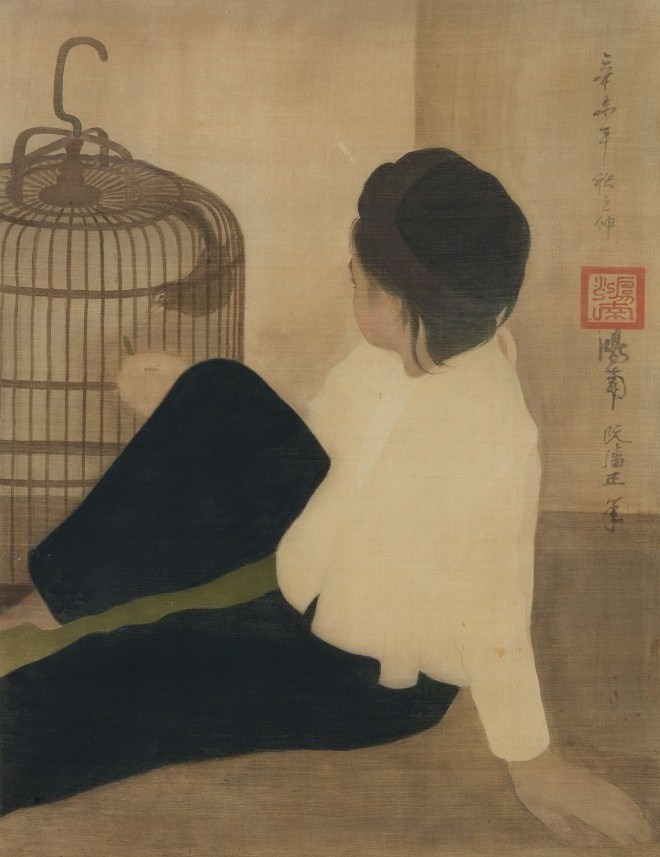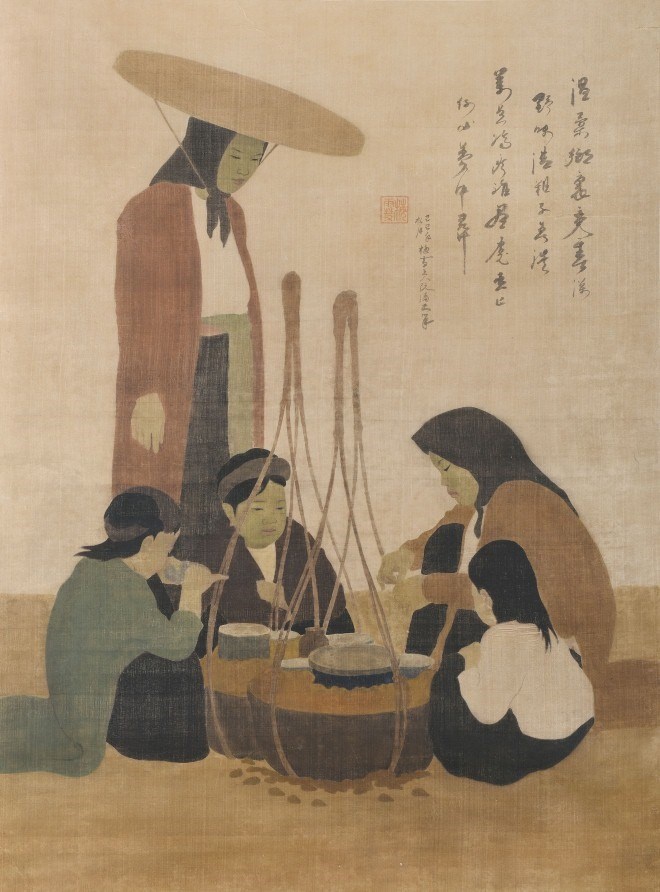
A silk painting by Vietnamese master artist Nguyen Phan Chanh (1892-1984), one of the leading painters of Vietnamese contemporary fine arts, has been sold at over 853,000 USD (6.7 million HKD) at an auction by Christie’s Hong Kong
Child with Bird, silk, 1931, by Nguyen Phan Chanh, has just been sold at over 853,000 USD.
This is the highest price for a painting by any Vietnamese
artist sold by the auction house and in the world.
The painting depicts a girl feeding her bird. Em Be Ben Chu
Chim(Child with Bird), ink and colour powder on silk, was drawn in 1931
and measures 65x50cm. Its original price was 128,000-205,000 USD.
According to Christie’s, before the auction in Hong Kong, the
painting was owned by a collector, who purchased it directly from Chanh.
The art collector who bought the painting on May 27 resides
in France.
On May 26, another painting by the same artist,Nguoi
Ban Oc(The Snail Seller), was sold for 600,000 USD (4.66 million HKD) at
Christie’s Hong Kong.
The Snail Seller, silk, 1929, by Nguyen Phan Chanh.
The painting, ink and colour powder on silk supported by
paper and measuring 88x65.6cm, was made in 1929.
The Snail Sellerwas showcased at the Paris-Bois de
Vincennes International Exhibition from May 6 to November 15, 1931, where Chanh
displayed six of his works. Experts guessed that Chanh had displayed his
artworks at the exhibition because in 1929, while studying at the Indochina
Fine Arts College, he won the first prize at the Indochina Post Stamp Design
contest.
In 1931, Chanh made two silk paintings, which were considered
master pieces ---Choi O An Quan(Playing O An Quan Game)
andChild with Bird. He tried his hand at silk painting with the
encouragement of his college rector, Victor Tardieu (1870-1937).
TheSnail Sellerwas collected in 1931 and was
occasionally displayed at exhibitions here and there. Its most recent
appearance was in 2002 at the Mariemont Royal Museum in Belgium. The
exhibition, titledPeach and Blue Birds: Arts and Civilisation of Vietnam,
was held from April 20 to August 18.
During his life, Chanh made some 170 paintings, most of which
measure 65x50cm.
Although he painted about various topics, he was known for
his paintings of ordinary people and popular images in the northern region of
Vietnam.
Source: VNA
With an increasingly vibrant and widespread emulation movement aimed at building cultured residential areas and cultured families, Yen Thuy District has been making steady progress toward improving both the material and spiritual well-being of its people, while fostering a civilized, prosperous, beautiful, and progressive community.
Once lacking recreational spaces and community facilities, Residential Group 2 in Quynh Lam Ward (Hoa Binh City) has recently received attention for the construction of a new, spacious, and fully equipped cultural house. The project followed the model of state support combined with public contributions in both labor and funding.
The "All people unite to build cultural life" movement, which has been effectively integrated with Kim Boi district’s socio-economic development goals, is fostering a lively spirit of emulation across local residential areas, hamlets, villages, public agencies, and enterprises. In addition, through the initiative, traditional cultural values are being preserved and promoted, while community solidarity and mutual support in poverty reduction and economic development are being strengthened.
A working delegation of the Hoa Binh provincial People’s Committee led by its Permanent Vice Chairman Nguyen Van Toan on June 11 inspected the progress of a project to build the Mo Muong Cultural Heritage Conservation Space linked to tourism services in Hop Phong commune, Cao Phong district.
Born and growing in the heroic land of Muong Dong, Dinh Thi Kieu Dung, a resident in Bo town of Kim Boi district, in her childhood was nurtured by the sweet lullabies of her grandmother and mother. These melodies deeply imprinted on her soul, becoming an inseparable part of her love for her ethnic group's culture. For over 20 years, this love for her hometown has driven Dung to research, collect, and pass down the cultural values of the Muong people to future generations.
In the final days of May, the Ethnic Art Troupe of Hoa Binh Province organized performances to serve the people in remote, mountainous, and particularly disadvantaged areas within the province. These were not just ordinary artistic shows, but they were the meaningful journeys aimed at spreading cultural values, enhancing the spiritual life of the people and contributing to the preservation of ethnic minority cultural identities.




